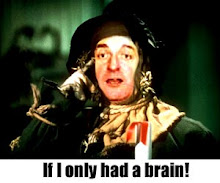Killer Joe
When Chris Smith (Emile Hirsch) lets his gambling get him into debt with a local loan shark, he fixes on a novel way of getting the money he needs; hire a hitman to kill his mother for her insurance policy. The hitman he hires is dirty cop, Joe Cooper (Matthew McConaughey). Things get out of hand though when Cooper demands Chris's sister as 'a retainer'. Then there's Chris's father and stepmother to consider, one not the sharpest tool in the machine shop, the other perhaps too sharp for her own good. And is little sis just going to take this lying down? And so the black comedy that is 'Killer Joe' begins.
Adapted from his own stage play by Tracy Letts, 'Killer Joe' centers on a 'white trash' family of stereotypical losers who inadvertently invite the devil, well, Matthew McConaughey, into their home. Its violence, amorality and clever dialogue remind one of Tarantino, but these similarities (no doubt things that attracted hit-starved Friedkin to the project) are somewhat superficial. This was a play afterall and despite attempts to broaden the action out, it often plays like one. On the plus side, there is a real playwright's attention to the organic integration of plot and character. Similarly Letts doesn't allow his command of dialogue get in the way of the drama; while not so obviously showy as Tarantino, it is almost always precise and effective. However, there is also a tendency to talk rather than show and unless the director is really on song this can paradoxically mute a movie.
Is director William Friedkin on song? His career has been patchy at best since his high-rolling days of 'The Exorcist' and 'The French Connection'. With 'Killer Joe', he attempts to resurrect his moribund reputation with something designed to provoke. His notion of provocation though is simply to trot out a lot of female nudity and some awkward misogyny. Reveling in the low Texas milieu of the characters he ends up concentrating on what is in my opinion the least successful aspect of the screenplay, the 'white trash' ideology. From the dim-witted dad to the gambling son to the incipient incest Dottie seems to provoke, the portrayal of the trailer park anti-heroes encourages an easy point-the-finger attitude in its audience. This family should be exemplars of humanity as a whole, demonstrating our worst excesses much in the manner of a Jacobean tragedy like Middleton and Rowley's 'The Changeling'. To concentrate on who they are without opening them out allegorically, is to take easy potshots at a bunch of stereotypes. Friedkin doesn't open the play out at all. True, it is no doubt all in Lett's script, but Friedkin is too slavish to that screenplay. He floats on the surface showing us the hoods, the strippers and the self-destructive trailer folk, but seems unable to get beneath their skins, the system that holds them or the world that binds them to us. If you want a contrast, think of the Coen Brothers' black comedy, 'Fargo'. A similarly themed story of a man in debt's botched attempt to extort money using a family member; hired thugs prove his undoing too. However, 'Fargo' never lost sight of the fact that its characters were not really too far from its audience. There but for the grace of God....
Friedkin is not without his talents though, and this is a kind of return to form. 'Killer Joe' never flags and never loses our engagement. If I dislike the ideology behind it, I can still respect it for the solid entertainment it is. It's also one boosted by selfless performances from all involved (with the possible exception of Hirsch, who hams it up a wee bit too much). In particular, and against the odds, Matthew McConaughey succeeds admirably in the menacing role of Cooper. If this is not the film to resurrect Friedkin's career, it may well be the one to resurrect McConaughey's. (No doubt he was thinking of John Travolta in 'Pulp Fiction' when he signed up to the project.)
With a current cinematic landscape that is so bland, any film that pushes the boundaries should be welcomed. 'Killer Joe' is certainly not bland and consistently tries to go beyond the pale. Brandishing two fingers to the cosy mores of today's sanitised Hollywood, it strikes a distinctly seventies pose. But there were bad aspects to the seventies too, things like misogyny, stereotyping and polarisation. These surface here too. 'Killer Joe' pushes the boundaries, but one has to wonder if it pushes them in the right direction.
Labels: Film, William Friedkin


0 Comments:
Post a Comment
<< Home